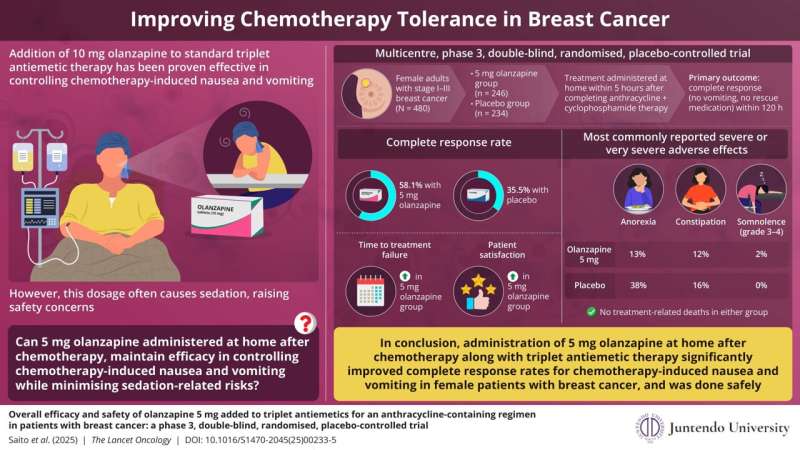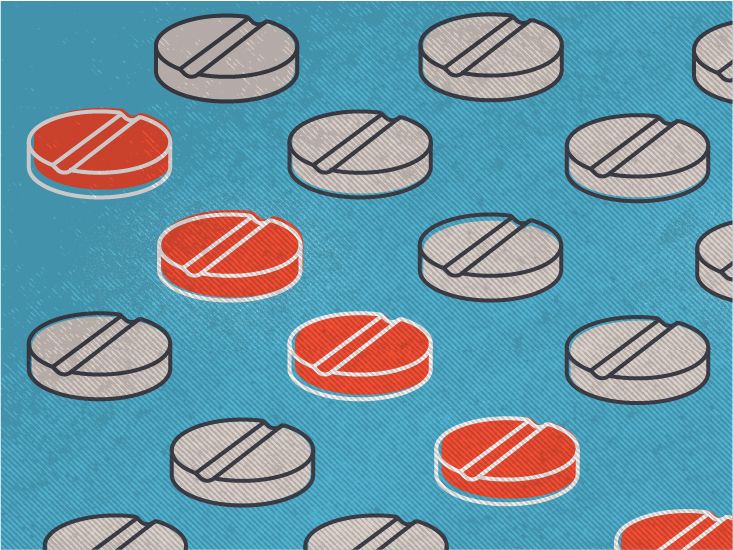Why Do I Feel Nauseous at Night? Causes and Solutions for Females
Feeling nauseated in the evening or at night can be unpleasant and disruptive. For females, nausea at night can stem from hormonal changes, digestion issues, and other health conditions.
Understanding the various causes of nausea can help identify ways to prevent and treat it. Here are some of the main reasons women tend to experience nausea at night along with tips to manage it.
Hormone Changes
Shifting hormone levels during a woman's menstrual cycle can trigger nausea for some. Estrogen and progesterone changes stimulate the brain chemicals that control vomiting and nausea.
Many women feel nauseous right before or during their periods when estrogen drops and progesterone rises. Others experience it during ovulation as estrogen surges.
Pregnancy is another time when huge hormonal shifts spark nausea and morning sickness. The elevated hormones like human chorionic gonadotropin (hCG) impact the part of the brain that controls nausea and vomiting.
Menopause can also cause nausea with the hormone fluctuations. Starting hormone replacement therapy may help minimize hot flashes and nausea during this transition.
Acid Reflux
Gastroesophageal reflux disease (GERD) results when stomach acid flows back up into the esophagus. This is called acid reflux and tends to be worse at night when lying down.
A muscular valve called the lower esophageal sphincter should prevent backflow. But when this valve relaxes, acid reflux and nausea can occur. The condition is more common in pregnancy with pressure from the uterus.
To reduce acid reflux, avoid trigger foods, don't eat 2-3 hours before bed, elevate your head while sleeping, and take antacids as needed.
Peptic Ulcers
Peptic ulcers are open sores that develop in the lining of the stomach, esophagus or small intestines. They often cause burning abdominal pain but nausea is another common symptom.
Ulcers form when the mucus layer protecting the lining weakens. This allows stomach acid to damage the tissues underneath. The main causes are the bacteria H. pylori and long-term use of non-steroidal anti-inflammatory (NSAID) medications.
Antibiotics can treat H. pylori infections and proton pump inhibitors like Prilosec can suppress excess acid production. Identifying and avoiding any triggers is key to preventing ulcer-related nausea at night.
Gastroparesis
Gastroparesis refers to delayed emptying of the stomach's contents into the small intestines. Food sits in the stomach too long and causes bloating, heartburn, nausea, and vomiting.
This condition affects stomach muscles and nerves. Causes include diabetes, certain medications, infections, and nerve disorders. Sometimes the cause is unknown.
Diet changes are the main treatment for gastroparesis. Eating smaller, more frequent meals with less fiber and fat can help. Medications to improve stomach emptying and control nausea may also be prescribed.
Food Sensitivities
Having a food intolerance or sensitivity to something you ate during the day could spark nausea hours later at night. Common problem foods include dairy, gluten, soy, eggs, corn, and certain artificial sweeteners.
Food sensitivities cause delayed gastrointestinal symptoms after eating trigger items. An elimination diet removing suspect foods for 2-3 weeks helps pinpoint the source.
Lactose intolerance is also very common, affecting 75% of the world's population. Consuming dairy products causes bloating, pain, and nausea when lacking enough lactase enzyme to properly digest the lactose sugar in milk.
Anxiety and Stress
Mental health disorders like anxiety and depression have strong ties to the digestive system. When under stress, the brain-gut connection can manifest in nausea, vomiting, diarrhea, constipation, cramps, and loss of appetite.
Excess stress hormones like cortisol over-stimulate the nervous system and impact digestion. Nighttime anxiety and rumination on issues can spark nausea. Relaxation techniques, counseling, and medications can help manage nausea related to anxiety.
Medications
Nausea is a common side effect of many prescription drugs and supplements. Anything impacting brain chemicals, hormones, digestion, and metabolism may potentially cause nausea.
Some examples of nauseating medications include: antibiotics, antidepressants, chemotherapy drugs, iron supplements, NSAIDs, birth control pills, ACE inhibitors for blood pressure, and opioids.
If nausea persists, talk to your doctor about alternative medication options or dosage adjustments. Taking pills with food may help decrease symptoms.
Gallbladder Issues
The gallbladder stores and releases bile to aid digestion of fats after meals. Gallbladder problems often relate to gallstones blocking ducts and bile flow. Resulting inflammation causes pain, nausea, vomiting, and indigestion.
Gallbladder symptoms may flare up at night after eating a fatty meal earlier. Losing weight, eating low fat, and surgery to remove gallbladder stones helps prevent recurrences.
Infections
Viral, bacterial, and fungal infections can lead to nausea when they affect the gastrointestinal tract. Consuming contaminated food or water introduces pathogens that inflame the stomach and intestines.
The Norovirus is a highly contagious virus causing severe vomiting and diarrhea. Food poisoning like salmonella and E. coli infection also lead to nausea and vomiting.
Fungal infections like Candida overgrowth in the gut can cause nausea with bloating and cramps. Restoring healthy gut flora balance helps treat fungal-related nausea.
Constipation
Infrequent, painful bowel movements and constipation often lead to nausea. The backup of stool puts pressure on the intestines and obstructs digestion causing vomit-like feelings.
Constipation has many causes like dehydration, poor fiber intake, sedentary lifestyle, certain foods, medications, and irritable bowel disorders.
Getting more exercise daily, drinking adequate water, and adding high fiber foods can help resolve constipation and related night nausea.
Early Pregnancy
Nausea and vomiting affect 70-85% of all pregnant women. Hormone surges are the main cause of "morning sickness" and nausea. While more common in the morning, pregnancy nausea can strike any time of day.
Consuming small frequent meals, ginger, vitamin B6, and acupuncture may provide relief. Most nausea resolves itself after the first trimester as hormones stabilize.
Indigestion
Indigestion or an upset stomach causes sensations of fullness, bloating, burping, nausea, and sometimes vomiting after meals. Heavy, fatty, or acidic foods commonly trigger indigestion.
Eating too fast, food intolerances, stress, stomach infections, and digestive disorders can also cause indigestion. Antacids like TUMS help, as does avoiding any problem foods.
Caffeine Intake
Consuming too much caffeine during the day can interfere with sleep and spark nausea at night. Caffeine is dehydrating and can aggravate the gastrointestinal tract, especially on an empty stomach.
Limiting coffee, tea, soda, and energy drinks to 1-2 servings daily prevents excess caffeine intake. Stop consuming caffeine at least 4 hours before bedtime to curb nighttime nausea.
Motion Sickness
Riding in planes, boats, trains, cars, or amusement park rides may cause motion sickness with dizziness, nausea, and vomiting. This results from the mixed signals sent to the brain during motion.
Lying down, focusing on the horizon, acupressure wristbands, and nausea medications can prevent and treat motion sickness. Avoiding reading or screens helps when traveling.
Early Pregnancy
Nausea and vomiting affect 70-85% of all pregnant women. Hormone surges are the main cause of "morning sickness" and nausea. While more common in the morning, pregnancy nausea can strike any time of day.
Consuming small frequent meals, ginger, vitamin B6, and acupuncture may provide relief. Most nausea resolves itself after the first trimester as hormones stabilize.
Food Poisoning
Consuming contaminated, undercooked, or spoiled foods can cause food poisoning leading to nausea. Bacteria like salmonella, E. coli and norovirus are common culprits.
Symptoms like vomiting, diarrhea, stomach pain, and nausea start 12-48 hours after ingesting bad food. Rest, fluids, and bland foods help recovery. Seek medical care for severe dehydration.
Chronic Conditions
Ongoing health issues and chronic diseases have nausea as a common symptom. These include diabetes, kidney disease, liver disease, migraines, vertigo, and concussions among others.
Treating the underlying condition helps alleviate associated nausea in most cases. Controlling blood sugar, medication, hydration, diet changes, and meeting with specialists improves chronic nausea.
Tips to Prevent Nighttime Nausea
Making certain lifestyle changes and adjustments to your daily habits can help prevent or decrease nausea at night:
Avoid Heavy Meals Before Bed
Eat smaller dinners and allow 2-3 hours for food to digest before lying down. Heavy, fatty, or spicy foods are harder to digest.
Limit Alcohol
Drinking too much alcohol can irritate the stomach lining and dehydrate the body, leading to nausea. Avoid alcohol for several hours before bed.
Watch Triggers
Keep a food journal to identify problem foods that seem to spark nausea like dairy, gluten, eggs, etc. Eliminate suspect items.
Manage Stress
Anxiety and high stress negatively impact digestion and gut health. Try relaxing activities before bed like yoga, meditation, reading, gentle music, and aromatherapy with chamomile or lavender.
Stay Hydrated
Dehydration can slow digestion and cause nausea. Drink water consistently through the day and limit dehydrating caffeinated or alcoholic drinks.
Take Medications With Food
If you take supplements or medications that cause nausea as a side effect, take them with a full glass of water and food to reduce stomach irritation.
Improve Sleep Hygiene
Getting poor restless sleep fuels anxiety and nausea the next day. Follow good sleep hygiene practices like limiting screens before bed, keeping the room cool and dark, and going to bed at the same time.
Try Acupuncture
Acupuncture can ease nausea by releasing serotonin in the gut. Acupressure bands on the wrists also hit nausea relief points.
Stay Upright After Eating
Avoid lying down or reclining soon after meals, which can trigger acid reflux. Stay upright for at least 3 hours after eating to prevent nausea.
How to Get Rid of Nausea at Night
When nausea strikes at night, here are some quick ways to help you feel better:
Sip Fluids Slowly
Dehydration worsens nausea. Sip small amounts of water or electrolyte drinks like Gatorade to rehydrate. Cold ginger ale can help settle the stomach.
Eat a Light Snack
Eating some dry toast, plain rice, crackers, bananas, or applesauce provides bland nourishment thats easy to digest. Dont skip eating, as hunger makes nausea worse.
Apply a Warm Compress
Place a microwavable heating pad or warm washcloth over your abdomen. The warmth soothes the stomach muscles.
Use Essential Oils
Try aromatherapy with oils like peppermint, ginger, lavender, or chamomile. Put a few drops on a tissue and inhale the aroma or massage them diluted on your temples.
Take Medication
Over-the-counter medication like Pepto-Bismol can relieve nausea. For ongoing issues, get prescription antiemetics from your doctor to control nausea.
Practice Deep Breathing
When you feel nauseous, take slow deep breaths in through your nose and out through your mouth. This calms the body and nervous system.
Distract Yourself
Shift your focus by listening to soothing music, reading, playing games on your phone or having a light conversation to take your mind off the nausea.
When to See a Doctor
You should consult your physician about ongoing nausea if:
- Nausea persists for more than 2 weeks
- You experience severe abdominal pain
- You vomit blood or coffee ground-like material
- You have difficulty keeping fluids down
- You show signs of dehydration like dizziness and dark urine
- You have a fever over 101 F
- Nausea disrupts sleep, work, or daily activities
Sudden or severe nausea may be tied to a medical emergency like a gastrointestinal blockage, kidney issues, or diabetic ketoacidosis. Seek prompt care for dangerous symptoms.
The Bottom Line
Feeling nauseated during the night can have many causes for females. Look at factors like diet, medication, stress level, exercise, and menstrual cycle patterns to help identify what triggers nausea.
Making lifestyle changes like eating lighter dinners, managing heartburn, staying hydrated, and relaxing before bed often reduces nighttime nauseous sensations. Over-the-counter medication and natural remedies can provide symptom relief as well.
Pay attention to any nausea that seems severe or persists daily, and consult your doctor. Addressing the root cause provides the best solution for ongoing nausea so you can sleep soundly and wake up feeling your best.
FAQs
Is nausea at night serious?
Occasional mild nausea at night is usually not serious. But if severe, persistent, or accompanied by vomiting, weight loss or fever, it could indicate an underlying health issue needing medical attention.
Can anxiety cause nausea every night?
Yes, anxiety disorders like generalized anxiety and panic attacks can cause symptoms of nausea in the evening or at night frequently. Managing stress through counseling, medication, meditation, exercise, social support, and relaxing activities can help.
Does nausea mean I'm pregnant?
Nausea and vomiting are common pregnancy symptoms. But nausea at night has many possible causes besides pregnancy including hormones, food, stress, etc. Take a pregnancy test if you suspect you may be pregnant.
How can I sleep with nausea?
Tips to sleep better with nausea include sipping ginger tea, using essential oils, taking over-the-counter antacids or anti-nausea medication, sleeping propped up on pillows, and using relaxation techniques.
Disclaimer: This article is for informational purposes only and does not constitute medical advice. Always consult with a healthcare professional before starting any new treatment regimen.
Related Coverage
Find effective chemo-induced nausea relief with low-dose olanzapine, diet tips, and safe strategies to stay strong during treatment....
Queasiness describes an unsettled stomach sensation related to early nausea without necessarily vomiting. Causes include medication, motion sickness, stress, food triggers....
Nausea involves feeling like you may vomit. Pregnancy, infections, medications, digestive issues and motion sickness are common causes. Treatments include medications, lifestyle changes and addressing underlying conditions....
Learn about ondansetron side effects, how to manage them, and what to expect during treatment for nausea and vomiting....
Today's porn saturation has normalized monotonous, male-centric sex routines. Women report predictability and laziness leaving them turned off and nauseated....
Nighttime nausea has many potential causes including GERD, pregnancy, migraines, gastroparesis, anxiety, and medication side effects. Tips to relieve and prevent nausea....
Explore the potential causes of tea-induced nausea, such as caffeine, tannins, and acidity, and discover effective strategies to prevent and alleviate this discomfort....
Do you feel nauseated at night as a female? Discover common causes like hormones, acid reflux, stress, food sensitivities. Get tips to prevent and treat nausea....
Find out the correct ondansetron dosage for adults and kids, timing, forms, and safety tips to relieve nausea quickly and safely....
When you feel sick to your stomach, use creative euphemisms like “tossing cookies” or “driving the porcelain bus” instead of saying “throwing up.” More polite and funny synonyms for vomiting....







